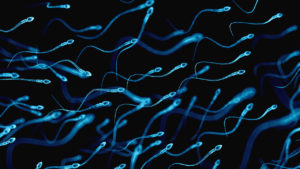
Study Suggests Coronavirus Can Damage Men’s Testicles By Triggering Changes To Sperm-Making Cells
A new study suggests that the coronavirus can damage the testicles of a man even if it does not infect them directly.
Researchers at the Tufts University and Gongi Medical College in China could find little evidence of the virus in men’s testicles, but they did find something else.
The researchers found out that the virus could harm fertility in several types of testicular cells.
The most disturbing changes they found in men who were COVID-positive were to the seminiferous tubules, small structures in the testes that produce and maintain sperm.
Cells were reportedly ballooning change, which means that they became deformed and stretched.
Although patients had normal spage while they were still sick with the coronavirus, the scientists were concerned that the damage could mean in eventual reduced or even absent in sperm production in people that recover from the deadly disease.
The article has been submitted for publication in the European Eurology.
The coronavirus is transmitted through droplets of saliva or mucus that is sent into the air from speaking, coughing, and sneezing.
Scientists are currently trying to find out if the virus can be transmitted through sexual intercourse.
As of writing this article, studies have not found the deadly disease in semen or in vaginal fluid, but because some cells in the testes have the same ACE2 receptors that allow the virus to attack lung cells, men are currently being warned about sperm donation.
According to certain studies, these receptors allow the testicles to act as a reservoir for the deadly disease.
However, the latest study suggests that actual infection may not be the mode by which the coronavirus damages the testicles of a man.
Researchers biopsied testicular tissue from 12 men that died of the virus, and they also tested the tissue as well as tissue of their lungs for a COVID-19 test.
10 of the 12 men had the coronavirus in their lungs, but only one of them had the deadly disease in their testicles.
The researchers said:
This patient had a high viral load and his lung, kidney, and spleen, in addition to testis, were positive for the virus.
There were also other signs of the virus’s insidious effects.
Microscopic tests revealed that deformities in the cell were present, which means that the production of healthy sperm will be seen.
Inflammation was also seen throughout the testes.
The researchers added:
Even though we did not find the virus in seminiferous tubules or Leydig cells, we speculate that viral membrane proteins, such as the spike protein, may play a role in the injury to seminiferous tubules and Leydig cells.
Researchers that carried out the study are worried that the damage found in this small sample of patients suggests that even men who recover from the disease could face some fertility issues later in their lives.